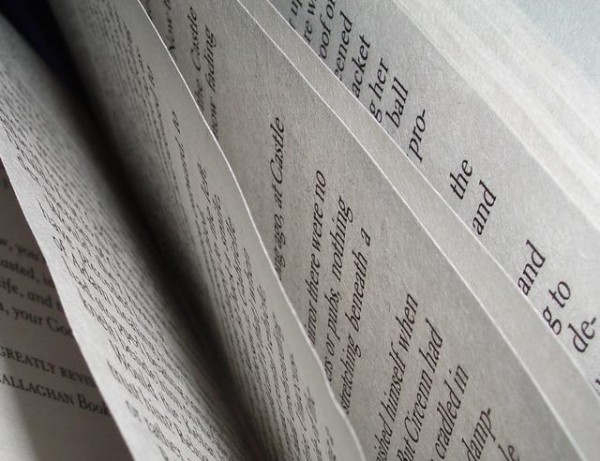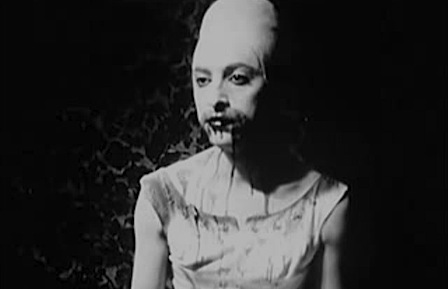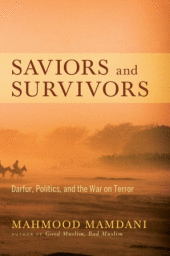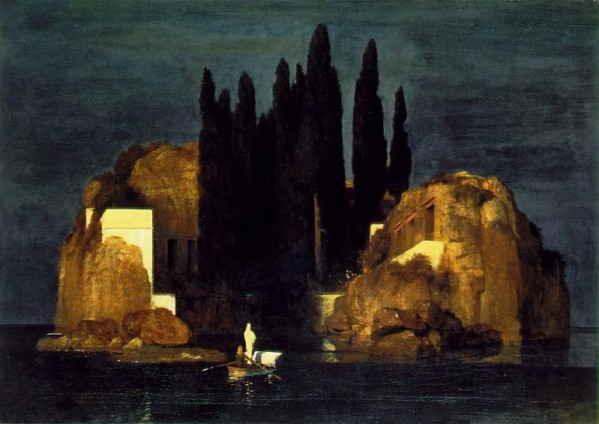Impossible Mike
http://topologyoftheimpossible.com
refuse reality, live forever.
http://topologyoftheimpossible.com
refuse reality, live forever.
CF is a comic artist whose work, according to his blurb on PictureBox, “is marked by a precise, electric line and unique visions of parallel modes of being.” A fairly apt description. CF has been “blowing up” in the comix world lately, primarily, perhaps, as an artist working within the realm of “art comics,” a departure from the overly-stale “indie comics” zeitgeist that has peppered the cultural consciousness of the literate for the last two decades, slowly permeating the mainstream via film adaptations of Daniel Clowes and the McSweeney’s/New Yorker “reign of terror” brought about by Chris Ware and the ever-present Jimmy Corrigan.
CF’s major work has been his currently in progress Powr Mastrs, of which the first three (of a projected six, though I’m hoping it ends up being far more than six) have been published to major acclaim. I definitely recommend picking them up, as they’re beautiful books with insane stories that come from space, holding a sort of parallel early-80s Heavy Metal euro-comics narrative attitude with a specifically unique art style that CF himself pioneered (and is now aped to varying degrees, but as someone who likes the style, I’m mostly ok with that).
However, what I’m interested in today is a close-reading of a zine that CF created, CITY-HUNTER. Frank Santoro, another fantastic comics guy, describes the “zine” as follows:
Lots of backgrounds with “Main Dice” the main character swinging down the street. Lots of “straight talk” from the editor of the Fantasy Empire Magazine company. It’s like CF made his own b&w action comic and worried more about how the indicia and logo would look than the story – so it’s kind of perfect.
There is no way I am not talking about this here. I don’t know how to start, actually. I feel like if I had the book in front of me I’d have some context, maybe. I don’t know. I’m going to take the “book & feelings” approach. It’s been 19 days since I finished the book, but whatever:
First, the shape of the book, its size, the paper, the texture; from a material design perspective, this book is ideal. I’m not kidding. This is probably ultimately my favorite size of a book for fiction. There is something ridiculously pleasant about it. This is purely subjective of course. If I ever write a novel this is the size I want it to be. I think its width to height ratio is similar to that of a half-sheet of Legal paper, which is a good ratio. Not square, but not as rectangular (well it is of course literally rectangular but you get the idea) as a normal paperback. It is a good ratio. The book has French flaps too, or whatever they’re actually called. It’s nice.
But a book can look nice and be shitty, we all know this. This book is not shitty.

Today I received an email asking me for publishing advice: “I just finished a book, and thought you might have some tips for publishing options. I want full color and nice fancy paper.” A few weeks ago, I had another inquiry: “I love that you have a printing business! I have something that needs to be printed… do you print these things, or should I just go to Kinko’s?” These questions, along with others garnered at the recent Chicago Zine Fest, have made me realize how much I’ve learned about publishing, and how skewed the perceptions of publishing can be.

I’ve spent a good portion of my life listening to people tell me that my tastes are pretentious, or that I only like the “stuff” that I like because nobody else likes it, or the I intentionally look for the most obscure shit possible to obsess over, etc. etc. etc. This is bullshit, of course. And I mean, whatever, I don’t have anything to prove and that’s not exactly the point of this post.
I lived in the desert and in the desert I had cable TV and an internet connection and the local CSA gave me basically all the food I need because I won a lifetime supply of it from some contest, I don’t know, and my great great grandfather or whatever owned the land I lived on so I didn’t have to pay rent and uh I had electricity and water by stealing it from my neighbor. My neighbor lived far away but I was creative. I didn’t pay for the internet or cable TV but I had them and I didn’t ask questions. Maybe somebody loved me and paid for them. The point is: I didn’t have anything to spend money on.
 Miles away from my home in the desert there was a tent in the desert and in the tent there was a preacher, and the preacher encouraged all to stay within all that which was holy, because everything outside was sin. Sometimes I went to the tent and watch the men and women climb in the glass tank that held rattle snakes. The snakes would bite people sometimes but nobody screamed and no one collapsed in pain and I reckon they were de-poisoned, I’m not sure how snakes work, the adders in the desert leave slithers at at night my baby rattle shakes like death breeze.
Miles away from my home in the desert there was a tent in the desert and in the tent there was a preacher, and the preacher encouraged all to stay within all that which was holy, because everything outside was sin. Sometimes I went to the tent and watch the men and women climb in the glass tank that held rattle snakes. The snakes would bite people sometimes but nobody screamed and no one collapsed in pain and I reckon they were de-poisoned, I’m not sure how snakes work, the adders in the desert leave slithers at at night my baby rattle shakes like death breeze.
Inside of my disconnection from the world at large I was exposed only to one thing: I saw the banalization of culture, I let it float over my head and wash my body, I refused to know of the existence of anything that was special, because here in this world everything to me was free and the machine of capitalism were the only gears still turning.
REBBECCA BLACK HAS BECOME A STAR
FUN FUN FUN FUN FUN FUN FUN FUN

In order to sit down and establish any sort of ideology1 that guides my life, I really have only a single point to consider: art2 is, without a doubt, what is most important to me. Out of everything. I say this without a hint of irony, with a complete presence of sincerity: everything that has ever been important to me has been mediated by art, to some degree.
Perhaps this is easy for me to say because I equate art with pleasure. Or the idea that art is beauty (as a definition from dictionary.com would like to suggest). If this were true then I wouldn’t have anything to say here. But, the unfortunate thing is that there is a lot of bad art that makes me furrow my brow and launch into hyperbolic rhetoric or a complete insincerity (read: irony). The other negation to the aforementioned declarations heeds itself to my own ideas in an appreciation of affect over visual aesthetic: i.e., something ugly, terrifying, and evil can bring pleasure.
I am not an overly-depressed person. I am (fairly) high functioning in a pretty normal way. I have no desire to be constantly escaping from reality. Kneeling at the temple of Art is not about escapism for me, and I think that’s why I inherently hate the idea of mediating an experience of art (exclusively) through empathy (this is why I will always champion modes of art that lie outside of representation3).
I occasionally feel like when I make this declaration, I am widening a divide between myself & the general public. I say this without elitism. The problem is making a statement like this seems to establish binary opposition: if I don’t like representation, I must like crazy non-narrative abstract shit. Right? I mean, that binary presupposes the person who is contrasting her or his own approach to art with mine is able to conceive of an approach to art that is outside of representation (and this is part of why my mother has no idea in regards to what I am interested in and what I am doing when it comes to “art”).
But here’s the thing: I love narrative. I have no desire to escape narrative. Of course, throughout my experiences with art I have grown mostly tired of archetypal narrative arcs, neatly wrapped up stories, etc etc. But that’s not the point. What I look for in art, what I aim for in art, ultimately, as I’ve said many noted many times in comment threads, is affect.
My only former point of reference for Blanchot’s fiction has been The Last Man, which, while stunning, was incredibly dense, and at times a real chore to get through (which is ultimately a positive quality for a book to have, far more affective in this case). Aminadab, however, has more of a narrative to its core which allows a reader to actually get through it rather quickly, and the narrative progression provides something to hold on to (I mention these things not to presuppose that Aminadab is better than The Last Man, rather to just differentiate). This is an entirely different experience than The Last Man.
There is still, I think, just as much thought present here. Though Aminadab is earlier in Blanchot’s career, before things had become as articulated perhaps, but certainly after he had already set out his task in approaching literature.
I’ve been spending a lot of time lately thinking about the position of criticism. At least, specifically in the online sphere. Clearly, the culture of criticism is something that helps perpetuate discussion about this stuff we like, which is always a good thing. Namely, this stuff we like, here at HTMLGIANT, is literature. Criticism can be great because it can carry on a conversation about a piece of work which helps to maintain the lifespan of the work. This is stuff that needs to happen– literature should not be read and forgotten, it should live on in other words I think.
The first public writing I ever did on the internet was film reviews. I started doing it because I was watching a lot of movies that had me really fucking excited, but nobody else on the internet was writing about them. Or, if they were mentioned at all, it was either in dismissive brevity or a simple exclamatory remark like “THIS SHIT IS DOPE!” Empty hyperbole is fine, and sometimes that’s all you have the energy to say, but I didn’t want to leave the space of these films. I wanted to engage with them and keep them going, because I knew they were powerful and needed some more recognition.
The first problem I ran into would be when I would watch something & end up not liking it at all. At the time, when I was basically just “developing content” in addition to gaining experience with what it was that I was doing, anything I had in my mind that I was going to review before watching it, I was stubborn enough to actually write about. If I found a film mediocre, the writing became a chore. If I hated a film, it was easy to spit vitriol, but I knew I wasn’t engaging with the film & that my commentary was useless. So, to put it simply, I stopped reviewing anything I didn’t like.
“The only way to atone for the sin of writing is to annihilate what is written. But the author can only do that; destruction leaves that which is essential intact. I can, however, tie negation so closely to affirmation that my pen gradually effaces what it has written. In doing so it accomplishes, in a word, what is generally accomplished by ‘time’ — which, from among its multifarious edifices, allows only the traces of death to subsist. I believe that the secret of literature is there, and a book is not a thing of beauty unless it is skillfully adorned with the indifference of ruins.” (Georges Bataille, Abbe C)
2].
The nothing [the void] names that undecidable of presentation which is its
unpresentable, distributed between the pure inertia of the domain of the multiple, and
the pure transparency of the operation thanks to which there is oneness [d’où procède
qu’il y ait de l’un]. The nothing is as much that of structure, thus of consistency, as
that of the pure multiple, thus of inconsistency. (BE 55; emphasis added)
disappear